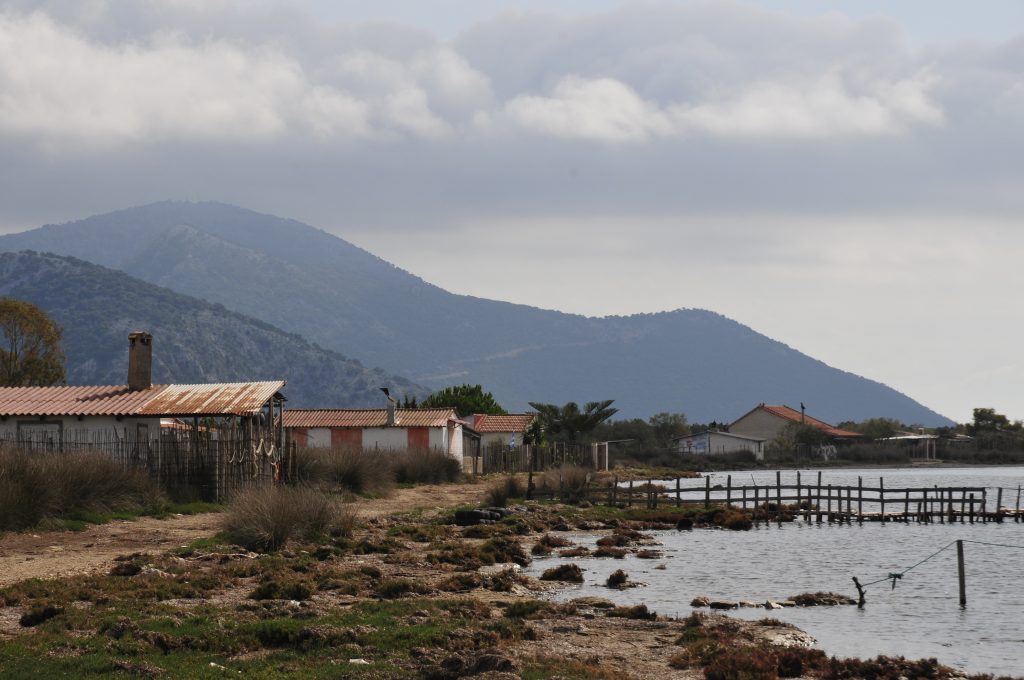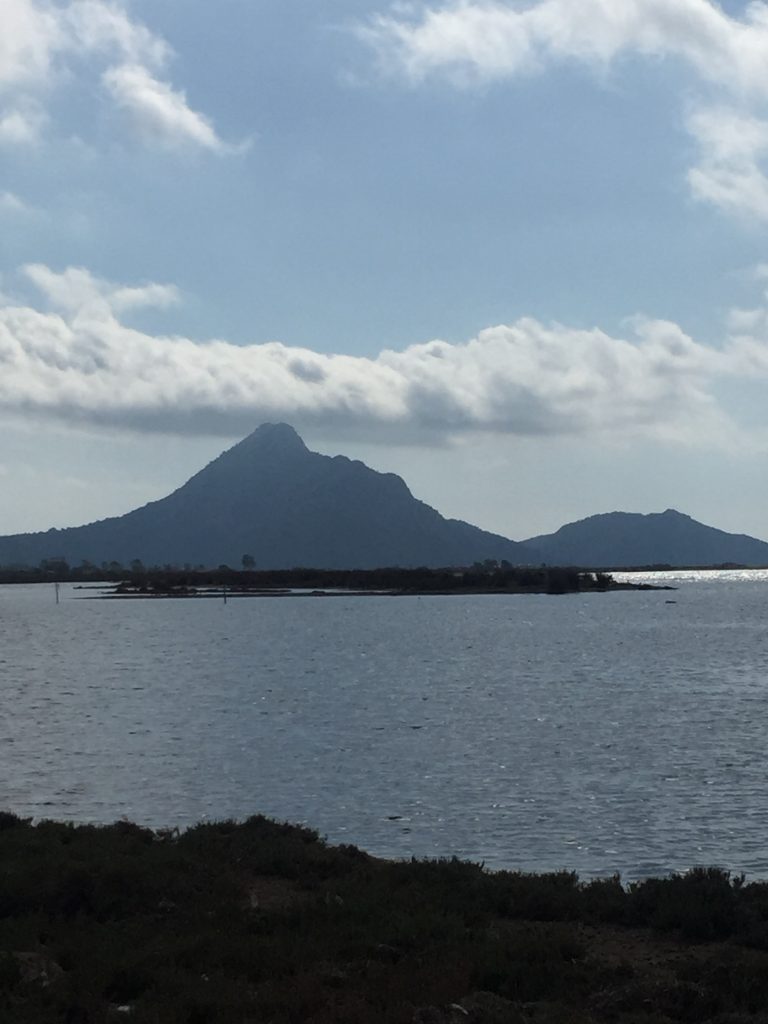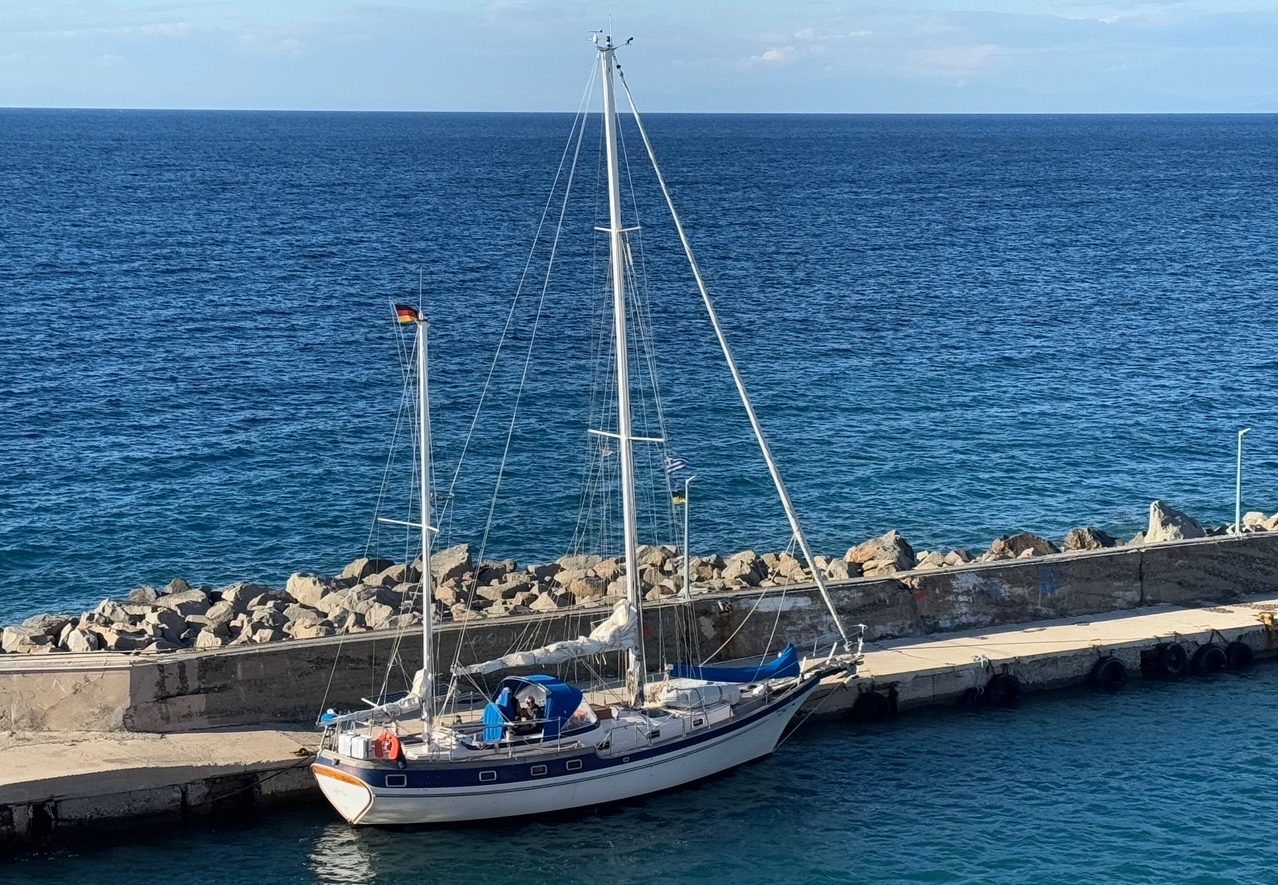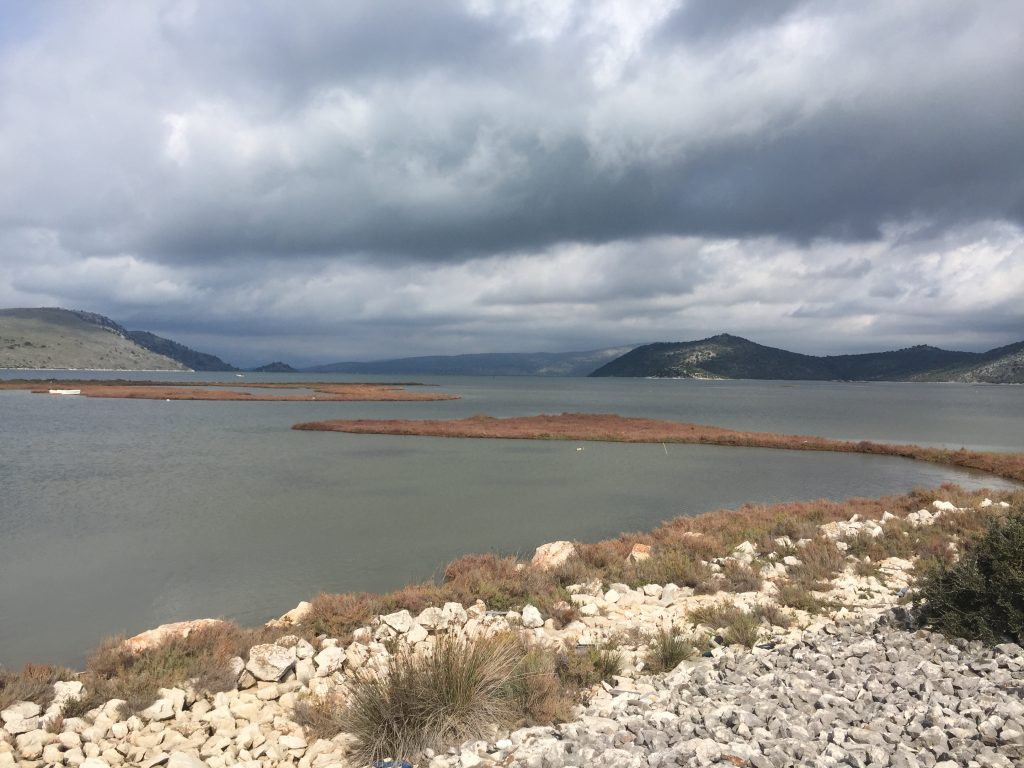
Last year we already went with Beatrix and Peter to the ancient shipyard on the peninsula west of the lagoon town of Aitoliko. We are going there again, because Oinádái was a whole ancient city with an amphitheatre and a city wall. We take another detailed look at it and discover interesting things in the fauna, for example oaks, whose acorns are up to four times bigger than we know them from Germany. And once again we are all alone in the area.
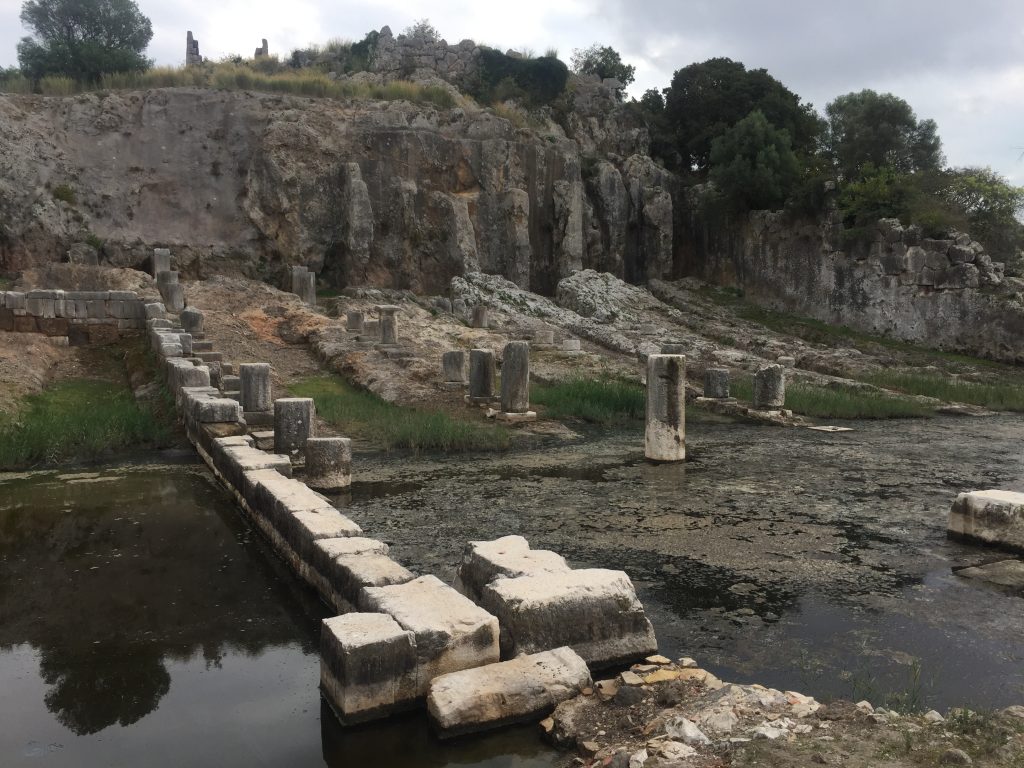
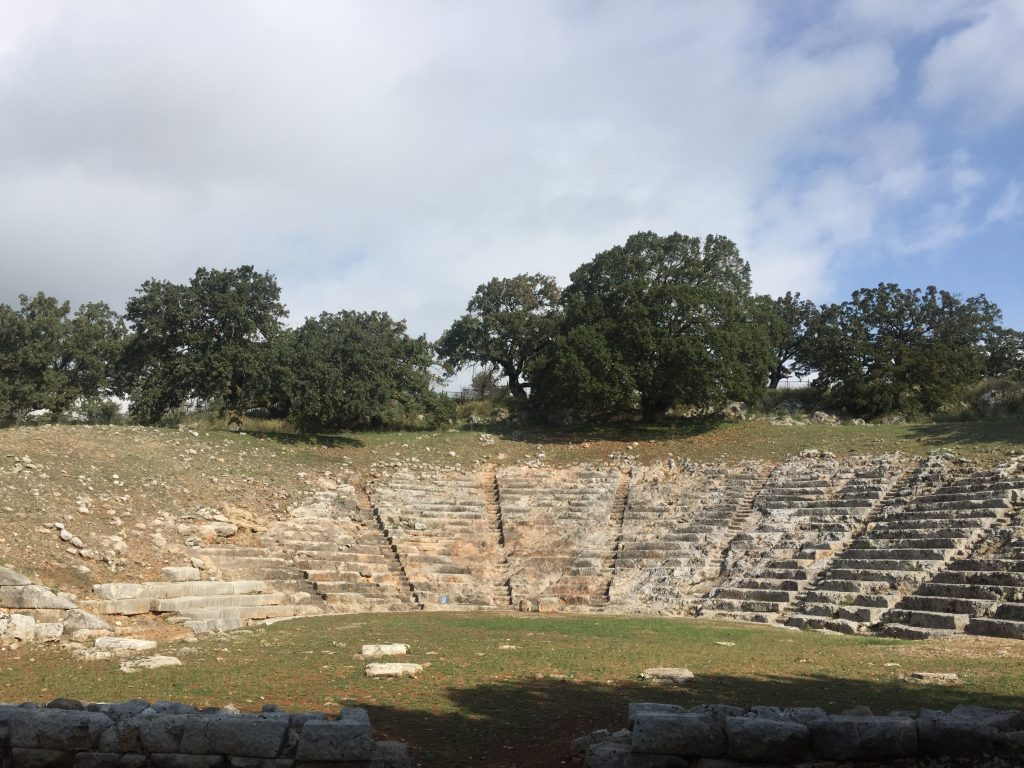
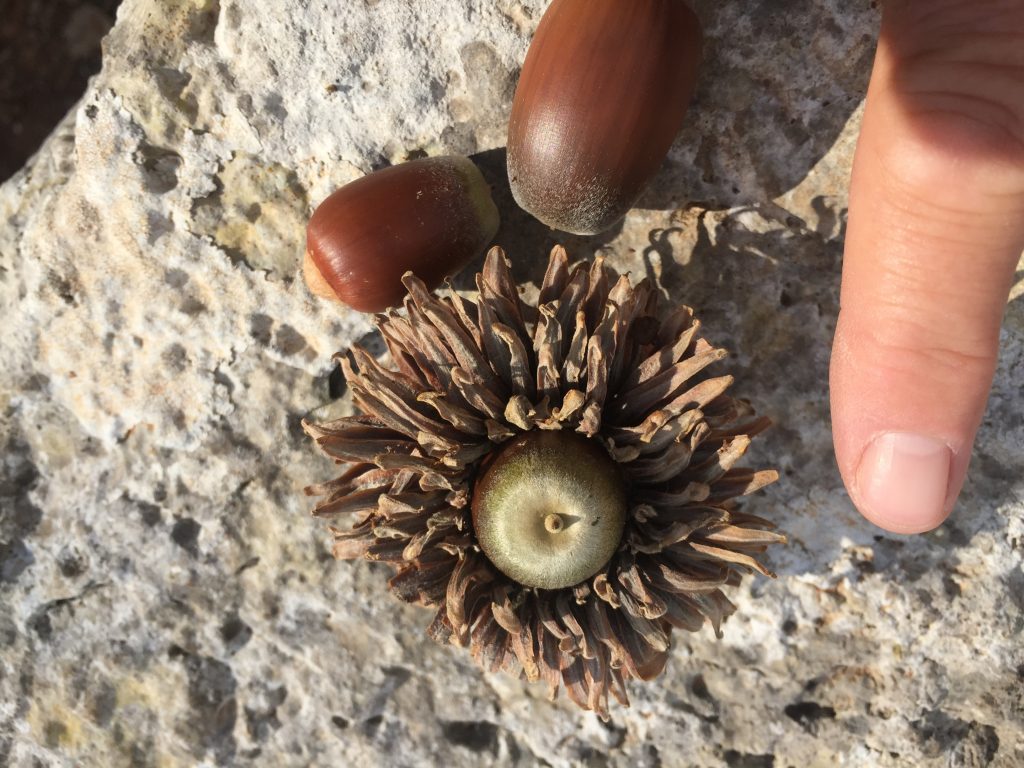
As we ask ourselves again where the access of the ancient shipyard to the sea was, we continue on bumpy roads along watering canals to the coast at the bay of Petala. We drive through a landscape that at first sight seems deserted. But when we take a closer look, we can see that there are people living here who cultivate the land, for example by growing vegetables and cotton (!). Cotton needs a lot of water. That is why we are surprised that cotton is grown in a region where there is a shortage of water in the warm season. Until a few years ago, Greece was among the top ten largest cotton producers in the world, we read on the internet. The rivers from the mountains (here the river Acheloos) have probably always brought enough water. And there is a sophisticated watering system that still works today. We have not been able to determine whether the decline in production is more to do with the crisis, climate change or globalisation. Globalisation will probably be a major factor.
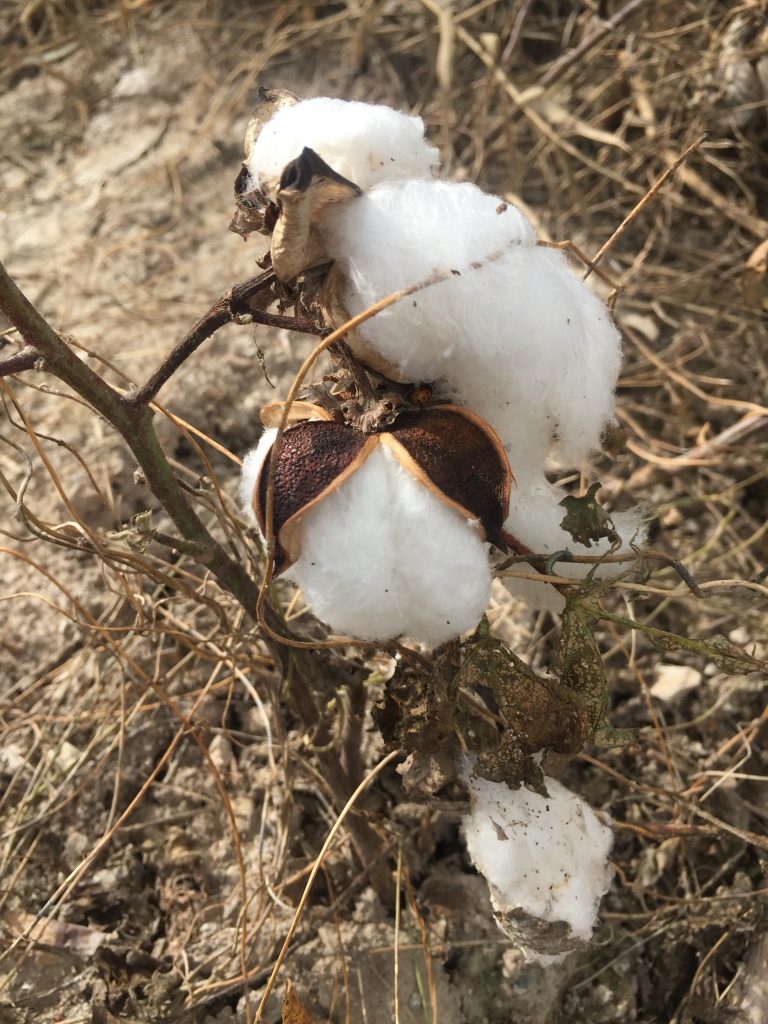
At the bay of Petala we come to the sea. We see wooden houses, there is no one around, everything looks very poor. But the houses are inhabited. What do the people here live on? Probably not from fishing, because we do not see any fishing boats. But there are sheds with goats and sheep and in one place even cows. All the animals are very lean, not like at Home in the pastures. The author Petros Makaris writes in his essays that there was a "culture of poverty" in Greece before joining the EWG/EU. Many people were poor, but they managed to live in poverty in dignity. That has changed, demands have risen and many are living on credit, he writes. But here in this region, which at first glance seems deserted, this "culture" may still exist. We are impressed and touched.
